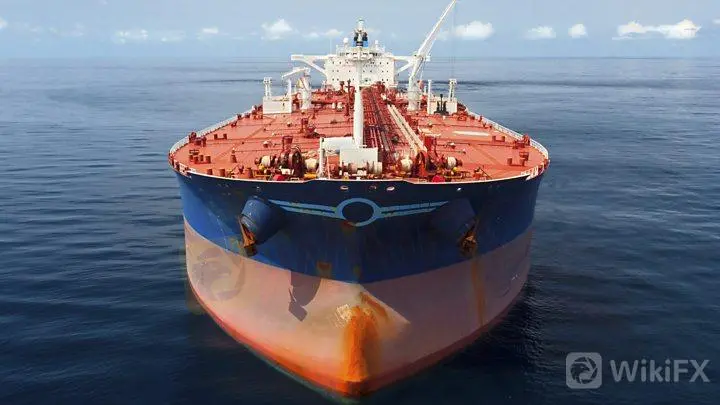简体中文
繁體中文
English
Pусский
日本語
ภาษาไทย
Tiếng Việt
Bahasa Indonesia
Español
हिन्दी
Filippiiniläinen
Français
Deutsch
Português
Türkçe
한국어
العربية
Gulf of Oman tanker blasts: Crews rescued safely
Abstract:Image copyrightFrederick A Terry/Artjom LofitskiImage caption The 21 crew on the Kokuka Courageous (
Image copyrightFrederick A Terry/Artjom LofitskiImage caption
The 21 crew on the Kokuka Courageous (L) and 23 on the Front Altair have been rescued
Dozens of crew members have been rescued after abandoning two oil tankers hit by explosions in the Gulf of Oman.
Ship operators said 21 crew on board the Kokuka Courageous and 23 on the Front Altair had been evacuated.
Iran rescued the 44 after an “accident”, state media said, although the cause is unconfirmed. The US Navy said it received two distress calls.
The incident comes a month after four oil tankers were attacked off the UAE.
US-Iran tensions explained
'Sabotaged' tanker in Gulf of Oman leaked oil
Oil prices rose as much as 4.5% from a near five-month low following Thursday's incident, Bloomberg reports.
What do we know about the explosions?
The cause remains unclear.
The Norwegian-owned Front Altair had been “attacked”, the Norwegian Maritime Authority said, leading to three explosions on board.
Wu I-fang, a spokesman for Taiwan's state oil refiner CPC Corp, which chartered the Front Altair, said it was carrying 75,000 tonnes of naphtha and was “suspected of being hit by a torpedo”, although this has not been confirmed. Other unverified reports suggested a mine attack.
The ship's owner, Frontline, said the Marshall Islands-flagged vessel was on fire but denied reports on Iran media it had sunk.
The operator of the Panama-flagged Kokuka Courageous, BSM Ship Management, said its crew abandoned ship and were rescued by a passing vessel.
The tanker was carrying methanol and was not in danger of sinking, a spokesman said. It is currently located about 80 miles from Fujairah in the UAE and 16 miles from Iran.
Who came to the rescue?
Iranian state media said Iran had rescued the crew members and they had been taken to the port of Jask.
Iran's IRIB news agency tweeted an image of what it said was the burning Front Altair, although the picture has not been independently verified:
Skip Twitter post by @iribnewsFa
تصوير اختصاصي #خبرگزاري_صدا_و_سيما از کشتي هاي حادثه ديده در #دریای_عمان
نفتکش “فرانت التیر” که در دریای عمان هدف قرار گرفته بود، کامل غرق شد.
وزارت تجارت ژاپن: دو نفتکش حادثهدیده در دریای عمان، حامل «محموله متعلق به ژاپن» بوده است#انفجار_ناقلتي_نفط_ببحر_عُمان pic.twitter.com/Vv3hkW3LCV
— خبرگزاری صداوسیما (@iribnewsFa) June 13, 2019
Report
End of Twitter post by @iribnewsFa
The initial reports of the blasts came through the Royal Navy-linked UK Maritime Trade Operations (UKMTO) safety group, which issued a warning, urging “extreme caution” in the area.
The US 5th Fleet, based in Bahrain, said it had sent the USS Bainbridge to assist.
Spokesman Josh Frey said in a statement: “US naval forces in the region received two separate distress calls at 06:12 local time (03:12 GMT) and a second one at 07:00.”
Why is this so sensitive?
The Gulf of Oman lies at one end of the strategic Strait of Hormuz, and this incident will further increase tension in a vital shipping lane through which hundreds of millions of dollars of oil pass.

Media playback is unsupported on your device
Media captionWhy does the Strait of Hormuz matter?
The US sent an aircraft carrier strike group and B-52 bombers to the region at the start of May in response to what it said was an unspecified plan by Iran-backed forces to attack US forces in the area.
President Donald Trump has taken a hard line towards Iran, accusing it of being a destabilising force in the Middle East.
Iran rejected the claims and has accused the US of aggressive behaviour.

Media playback is unsupported on your device
Media captionThe BBC was invited on board the USS Abraham Lincoln in the Arabian Sea
Those tensions rose markedly after the 12 May limpet mine attacks on four tankers off the UAE.
The UAE blamed an unnamed “state actor”. The US said that actor was Iran, an accusation Tehran has denied.
While it is unclear why Iran would carry out a relatively low-level attack on the multinational tankers, observers have speculated that it could have been to send a signal to forces ranged against it that it is capable of disrupting shipping there without triggering a war.
Were you on board one of the tankers? Do you know anybody who was on board? If it is safe to do so, please share your experiences by emailing haveyoursay@bbc.co.uk.
Please include a contact number if you are willing to speak to a BBC journalist. You can also contact us in the following ways:
-
WhatsApp: +44 7555 173285
Tweet: @BBC_HaveYourSay
Text an SMS or MMS to 61124 or +44 7624 800 100
Please read our terms of use and privacy policy
Disclaimer:
The views in this article only represent the author's personal views, and do not constitute investment advice on this platform. This platform does not guarantee the accuracy, completeness and timeliness of the information in the article, and will not be liable for any loss caused by the use of or reliance on the information in the article.
WikiFX Broker
Latest News
How Crypto Trading Transforms FX and CFD Brokerage Industry
FCA Warns Against 10 Unlicensed or Clone Firms
CySEC Warns Against 14 Unlicensed Investment Websites
Top Currency Pairs to Watch for Profit This Week - March 31, 2025
Will natural disasters have an impact on the forex market?
Philippines Deports 29 Indonesians Linked to Online Scam Syndicate in Manila
Exposing the Top 5 Scam Brokers of March 2025: A Closer Look by WikiFX
Gold Prices Climb Again – Have Investors Seized the Opportunity?
Webull Launches SMSF Investment Platform with Zero Fees
Australian Regulator Warns of Money Laundering and Fraud Risks in Crypto ATMs
Currency Calculator







